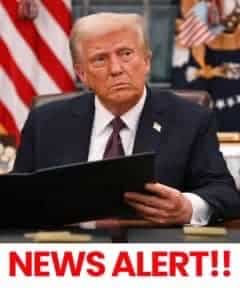In a recent move to combat anti-Semitism, former U.S. President Donald Trump signed an executive order that has significant implications for foreign students and individuals involved in pro-Palestinian protests. This order authorizes the deportation of international students who participate in demonstrations perceived as anti-Israel, aligning with the administration’s broader strategy to address campus activities deemed supportive of organizations like Hamas.
The executive order, signed in late January 2025, directs federal agencies to identify and potentially revoke the visas of non-citizen students involved in such protests. The administration justifies this action by referencing immigration laws that permit deportation of non-citizens who “endorse or espouse” terrorist organizations, with Hamas being designated as such by the U.S. since 1997.
Critics argue that this policy conflates legitimate political expression with support for terrorism, potentially infringing upon free speech rights. Legal experts and civil rights groups warn that using immigration enforcement to suppress protected speech could be unconstitutional and may lead to overreach by law enforcement.
In response to the executive order, some university alumni groups have taken proactive measures. For instance, an alumni group from Columbia University has reportedly discussed efforts to identify students involved in pro-Palestinian protests, aiming to facilitate their deportation.
This development has sparked a broader debate about the balance between combating anti-Semitism and preserving free speech on college campuses. As the Justice Department moves to implement the executive order, educational institutions and civil rights advocates are closely monitoring its impact on student activism and international student communities across the nation.





